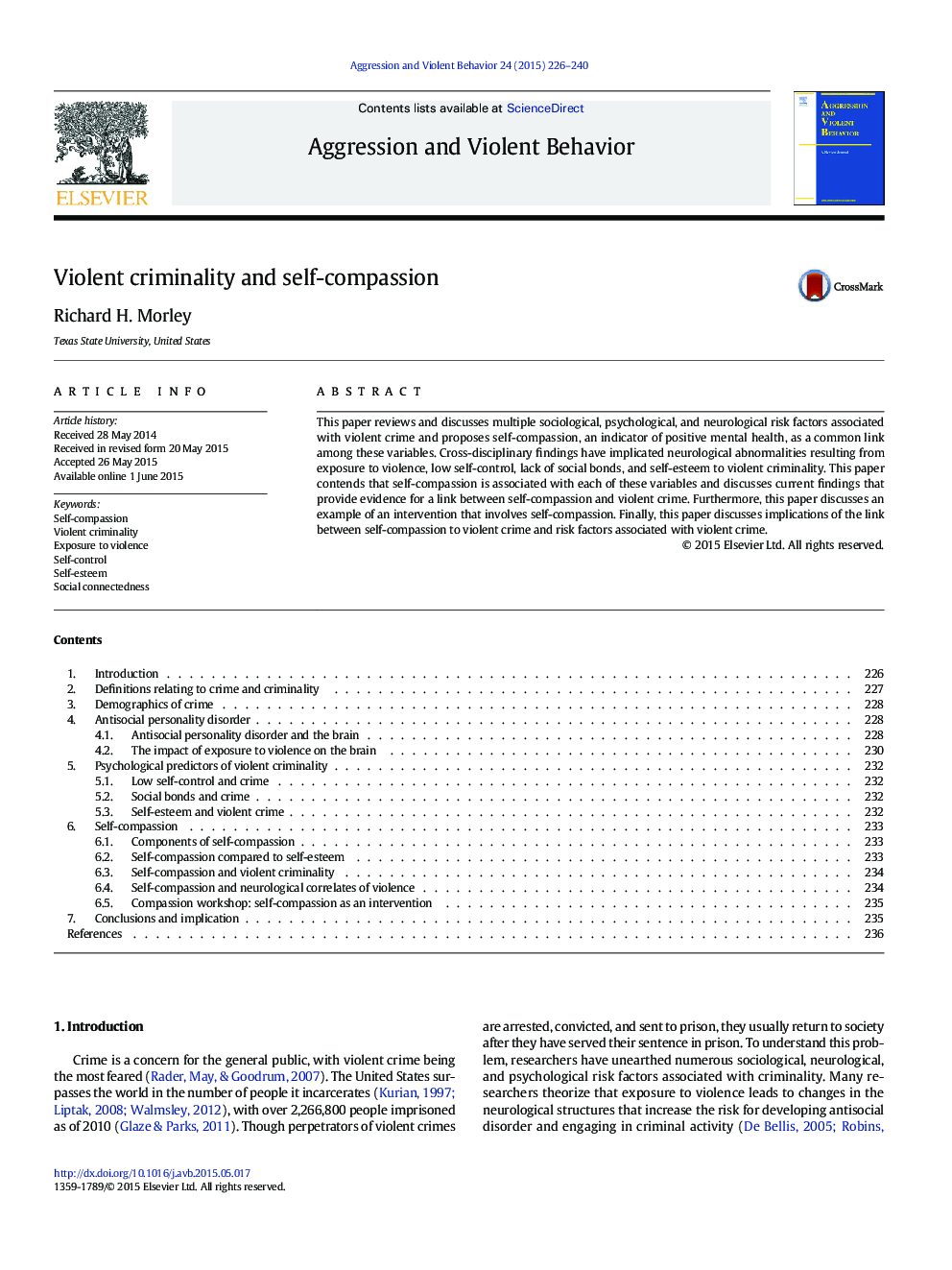| Article ID | Journal | Published Year | Pages | File Type |
|---|---|---|---|---|
| 94489 | Aggression and Violent Behavior | 2015 | 15 Pages |
•Exposure to violence engenders neurological changes associated with violent behavior.•Low self-control, lack of social bonds, and self-esteem are associated with violence.•Self-compassion is related to self-control, self-esteem, and social connectivity.•Changes in self-compassion correlate with neurological areas associated with violence.•A self-compassion intervention has been shown to reduce violence among violent men.
This paper reviews and discusses multiple sociological, psychological, and neurological risk factors associated with violent crime and proposes self-compassion, an indicator of positive mental health, as a common link among these variables. Cross-disciplinary findings have implicated neurological abnormalities resulting from exposure to violence, low self-control, lack of social bonds, and self-esteem to violent criminality. This paper contends that self-compassion is associated with each of these variables and discusses current findings that provide evidence for a link between self-compassion and violent crime. Furthermore, this paper discusses an example of an intervention that involves self-compassion. Finally, this paper discusses implications of the link between self-compassion to violent crime and risk factors associated with violent crime.
